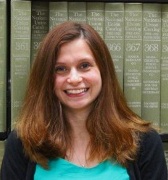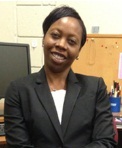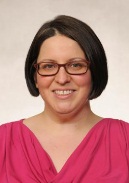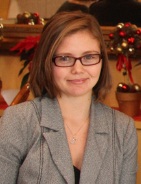By Cara Berg, Leslin Charles, Heather Dalal, & Amanda Piekart, on behalf of the User Education Committee
The members of the User Education Committee (User Ed) are delighted to share their current experiences with the Framework for Information Literacy in Higher Education in this themed issue of the ACRL-NJ/NJLA CUS newsletter. Below is a description of the activities of our members regarding the Framework since it was adopted by ACRL.
Background
When the Information Literacy Competency Standards of Higher Education was slated to be revised, as a committee focused on information literacy, we were very excited and anticipated an updated series of standards. However, what was released was was an entirely different model, the Framework for Information Literacy for Higher Education. We appreciate its philosophical/theoretical stance on our professional expertise. However, it became a concern for us as a committee when the ACRL Information Literacy (IL) Standards Revision Task Force insisted that the Standards would not be revised but be abandoned. As a result of the extensive work that had been done with the standards across NJ, we coauthored this Open Letter in an effort to sensitize the ACRL Board of the implications of losing a professional set of standards. Ultimately, the ACRL Board wisely decided to retain the Standards and the two documents live in the constellation of information literacy. Unfortunately, we still have a set of outdated IL standards but in the meantime, members of our profession are learning how to apply the Framework to their professional work.
What’s happening as a Committee?
Articles Have Been Written
Megan Dempsey and Heather Dalal co-authored an article for the Spring 2015 newsletter,”What’s all the Fuss about the Framework for Information Literacy for Higher Education” Please refer to that for more background and details of the differences between the Standards and the Framework. Additionally, the editor of Communications in Information Literacy invited the “Open Letter” writers to compose a follow up for a special issue of the journal. Five User Ed members coauthored an article with discussions on the implications for assessment, accrediting bodies, curriculum mapping, high school teachers, librarians, and potential employers. The editor, Robert Schroeder, wrote, "We like the piece as it shows places not only where the Framework and the Standards clash, but where they can work together symbiotically." Please keep an eye out for this article; the issue is due out by the end of the year.
Language of the Framework is Being Adopted
Several committee members expressed their appreciation for the Framework because it gave some new concepts to consider or phrases to use when teaching. For example, one member stated, “I hear myself saying the phrases in classes or reference transactions, “Scholarship as a conservation,” “authority is constructed and contextual”, “searching is strategic.” The words really describe our work and help us to express our expertise.
Professional Development Opportunities Were Offered
Over the past year the committee spent much of their time as a group discussing the Framework and submitting feedback to the ACRL Information Literacy Competency Standards for Higher Education Revision Task Force. Once the Framework was adopted, we were very interested in providing opportunities for other librarians outside of the committee to share their thoughts and experiences. This past summer, the User Ed committee hosted a half-day workshop titled, Charting a New Course for Information Literacy. The committee invited NJ librarians to submit proposals about the Framework for roundtable discussions and lightning talks. During the workshop there were two lively roundtable talks and one lightning presentation on the Framework. Librarians discussed not only the Framework itself but shared their challenges and approaches on how to integrate the Framework into their existing instruction practices.
The Framework in Practice
-
At Rider University, Heather Dalal reported that the Library Assessment Committee is considering a new direction and this would be a perfect time to use the Framework. The Library wrote new undergraduate learning goals a year and a half ago when the Framework was still not fully released. The committee strived to include verbiage from the old Standards and the new Framework. This leaves them being disconnected from the IL Standards, and creates the responsibility to either map the assessment to the Framework or develop their own internal set of learning outcomes.
-
At William Paterson University, Cara Berg created a one-size-fits most assessment for the upper-level undergraduate classes. Her library already has learning outcomes in place, so while they were able to draw up the assessment based on the learning outcomes, she used two of the frames in creating the questions for the assessment. The assessment now is designed to look at four different areas: student confidence, the impact of student confidence on their answers, the use of learning outcomes, and finally the use of one-shot assessment for a variety of different disciplines. The results have not yet been analyzed.
As a committee, we are open to all possibilities that will move our profession forward and maximize student learning whether this occurs via the Framework and/or the existing Standards, or otherwise. We are eager to see how members of our committee and profession move forward with the Framework and what happens next.
 Cara Berg is the Reference & Co-Coordinator of User Education at William Paterson University.
Cara Berg is the Reference & Co-Coordinator of User Education at William Paterson University.
 Leslin Charles is the Instructional Design Librarian at Rutgers University.
Leslin Charles is the Instructional Design Librarian at Rutgers University.
 Heather Dalal is an Assistant Professor II - Librarian at Rider University.
Heather Dalal is an Assistant Professor II - Librarian at Rider University.
 Amanda Piekart is the Information Literacy Instructional Designer at Berkeley College.
Amanda Piekart is the Information Literacy Instructional Designer at Berkeley College.
All are members of the User Education Committee.
